
Kod: 02414914
Effect of exercise on the mRNA expression of growth factors, metabolic genes and myosin heavy chain isoforms in skeletal muscles of the rat
Autor Antonios Matsakas
Doctoral Thesis / Dissertation from the year 2004 in the subject Medicine - Human Genetics, grade: 1,0, Sport Academy Cologne (Medizin- und Naturwissenschaften, Kreislaufforschung und Sportmedizin), language: English, abstract: In ... więcej
- Język:
 Angielski
Angielski - Oprawa: Miękka
- Liczba stron: 126
Wydawca: Diplom.de, 2004
- Więcej informacji o książce

101.80 €
Zwykle: 103.88 €
Oszczędzasz 2.08 €

Dostępna u dostawcy
Wysyłamy za 13 - 18 dni
Zobacz książki o podobnej tematyce
-

Llama and Alpaca Care
176.51 € -

Authors XI
16.67 € -10 % -

Corporate Carbon and Climate Accounting
121.41 €
Bon podarunkowy: Radość gwarantowana
- Podaruj bon o dowolnej wartości, a my się zajmiemy resztą.
- Bon podarunkowy dotyczy całej naszej oferty.
- Możesz wydrukować elektroniczny bon z e-maila a następnie przekazać go obdarowanemu.
- Ważność bonu wynosi 12 miesięcy od daty wystawienia.
Więcej informacji o Effect of exercise on the mRNA expression of growth factors, metabolic genes and myosin heavy chain isoforms in skeletal muscles of the rat
Za ten zakup dostaniesz 255 punkty
 Opis
Opis
Doctoral Thesis / Dissertation from the year 2004 in the subject Medicine - Human Genetics, grade: 1,0, Sport Academy Cologne (Medizin- und Naturwissenschaften, Kreislaufforschung und Sportmedizin), language: English, abstract: Inhaltsangabe:Abstract:§Skeletal muscle is a complex and heterogeneous tissue capable of remarkable adaptation in response to various stimuli such as exercise training. Molecular biology approaches have made a large contribution to our current understanding of how mechanical loading can alter gene expression and muscle protein synthesis rates in skeletal muscle. The steady-state level of a given mRNA is a function of both its rate of synthesis and its rate of degradation, implying that the rate of change in response to a cellular stimulus is dependent on the dynamics of mRNA turnover. Changes in muscle mRNA steady-state levels can be taken as an index of changes in gene expression, constituting currently one of the best described and understood molecular events that underlie muscle plasticity. §The discovery of new growth factors involved in the regulation of muscle development provides a better understanding of the molecular mechanisms involved in the adaptation of skeletal muscle to exercise training. Since it has been shown that changes in contractile function can be brought about by switching on one subset and repressing another subset of genes, it was hypothesized that the steady state level of multiple mRNAs (growth factors and metabolic genes) involved in regulatory functions in a muscle which is frequently recruited during exercise is different between endurance trained versus untrained rats. Recent scientific data indicate that myostatin constitutes a limiting factor in normal muscle development playing a crucial role in skeletal muscle hypertrophy. Nevertheless, there are only scarce data so far about the role of myostatin in the exercise-induced skeletal muscle adaptation. The transient changes in regulatory and structural gene expression provide the molecular basis of the adaptability of the skeletal muscle to exercise stimulus. §To get an insight into the molecular mechanisms of skeletal muscle adaptation, the main objective of this study was to examine the effect of both the short- and long- term effect of exercise (five day of swimming vs. chronic wheel running) on IGF-I and MSTN (positive and negative skeletal muscle regulators respectively) mRNA contents in male Wistar rats. Potential increase of positive and/or decrease of negative regulators of muscle growth lead to enhanced muscle-progenitor proliferation providing a new perspective in the mechanism of muscle adaptability. It was hypothesized that exercise training could be accompanied by an up-regulation of IGF-I and/or down-regulation of the MSTN gene (positive and negative skeletal muscle regulators respectively). Because MSTN expression has been reported to be more prominent in fast-twitch muscle, diverse skeletal muscles with different fiber type composition and recruitment patterns during movement were analyzed (gastrocnemius, vastus lateralis and soleus). In addition, MSTN was analyzed in combination with the mRNA contents of glucose transporter 4 (GLUT4), hexokinase II (HK II), and hydroxyacyl-CoA dehydrogenase (HAD), a set of well characterized metabolic genes. On the level of structural genes, myosin heavy chain (MHC) I, IIa and IIb mRNA were analyzed in gastrocnemius and vastus lateralis muscles of trained and untrained animals.§Rats were studied in two experiments by using two different protocols. Initially, the effect of 5-day endurance swim training on mRNA contents of MSTN and IGF-I (growth factors), HK II, GLUT4 and HAD (metabolic genes) and MHC isofors was analyzed in gastrocnemius, vastus lateralis and soleus muscles of male Wistar rats. In a second phase, the effect of a 12-week wheel running on the mRNA contents of the above mentioned genes was analyzed in a study...
 Szczegóły książki
Szczegóły książki
Kategoria Książki po angielsku Medicine Clinical & internal medicine
101.80 €
- Pełny tytuł: Effect of exercise on the mRNA expression of growth factors, metabolic genes and myosin heavy chain isoforms in skeletal muscles of the rat
- Autor: Antonios Matsakas
- Język:
 Angielski
Angielski - Oprawa: Miękka
- Liczba stron: 126
- EAN: 9783838682938
- ISBN: 3838682939
- ID: 02414914
- Wydawca: Diplom.de
- Waga: 172 g
- Wymiary: 210 × 148 × 8 mm
- Data wydania: 26. September 2004
Ulubione w innej kategorii
-
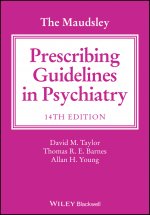
Maudsley Prescribing Guidelines in Psychiatry, 14th Edition
76.42 € -
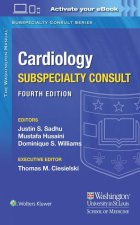
Washington Manual Cardiology Subspecialty Consult
70.86 € -
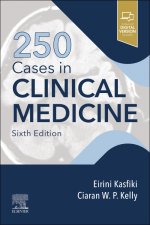
250 Cases in Clinical Medicine
59.33 € -

MRI in Practice, 5th Edition
51.55 € -7 % -
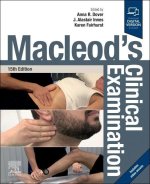
Macleod's Clinical Examination
56.61 € -4 % -
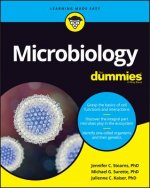
Microbiology For Dummies
16.67 € -36 % -
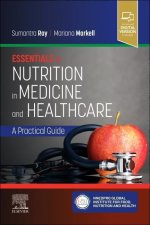
Essentials of Nutrition in Medicine and Healthcare
45.38 € -2 % -
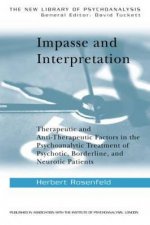
Impasse and Interpretation
62.47 € -

Users' Guides to the Medical Literature: A Manual for Evidence-Based Clinical Practice, 3E
108.87 € -
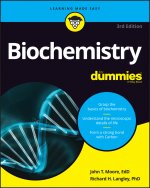
Biochemistry For Dummies, 3rd Edition
21.93 € -35 % -
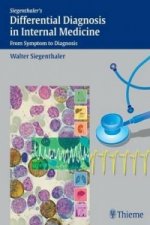
Differential Diagnosis in Internal Medicine
73.89 € -
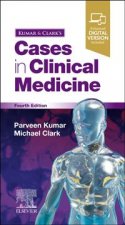
Kumar & Clark's Cases in Clinical Medicine
35.88 € -11 % -

Why Stomach Acid Is Good for You
14.35 € -15 % -

Anatomy Essentials For Dummies
9.49 € -16 % -

Top 100 Drugs
22.94 € -8 % -

Medical Secrets
45.79 € -14 % -

Nutrition in Clinical Practice
91.59 € -5 % -
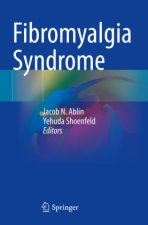
Fibromyalgia Syndrome
106.65 € -4 % -
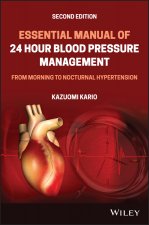
Essential Manual of 24 Hour Blood Pressure Management, - From Morning to Nocturnal Hypertension 2nd Edition
72.78 € -
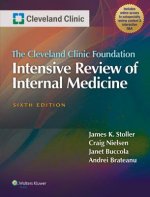
Cleveland Clinic Foundation Intensive Review of Internal Medicine
137.18 € -

Lifestyle Medicine - Essential MCQs for Certification in Lifestyle Medicine
84.91 € -
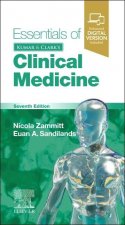
Essentials of Kumar and Clark's Clinical Medicine
44.07 € -1 % -

Urologic Oncology
122.62 € -4 % -

General Practice Cases at a Glance
38.81 € -
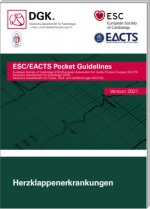
Herzklappenerkrankungen
6.06 € -

Advances in Diagnosis and Management of Ovarian Cancer
117.26 € -4 % -

Zoonosen
74.80 € -4 % -
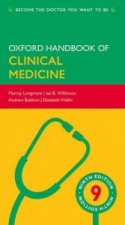
Oxford Handbook of Clinical Medicine
101.80 € -
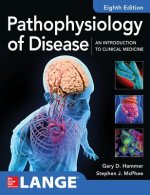
Pathophysiology of Disease: An Introduction to Clinical Medicine 8E
123.84 € -
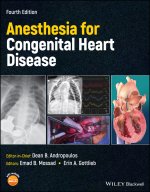
Anesthesia for Congenital Heart Disease 4e
283.37 € -
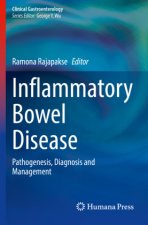
Inflammatory Bowel Disease
90.17 € -
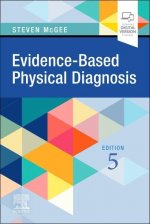
Evidence-Based Physical Diagnosis
66.72 € -9 % -
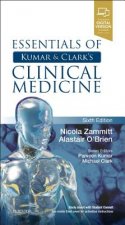
Essentials of Kumar and Clark's Clinical Medicine
35.07 € -3 % -

Blood Cells: A Practical Guide, Sixth Edition
139.81 € -7 % -
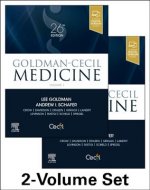
Goldman-Cecil Medicine International Edition, 2-Volume Set
113.52 € -1 % -
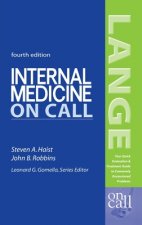
Internal Medicine On Call
86.13 € -
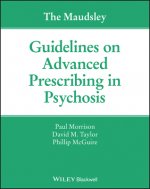
Maudsley Guidelines on Advanced Prescribing in Psychosis
29.91 € -

How to Read a Paper - The Basics of Evidence-based Medicine and Healthcare, 6th Edition
48.21 € -1 % -
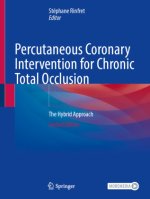
Percutaneous Coronary Intervention for Chronic Total Occlusion
170.24 € -4 % -
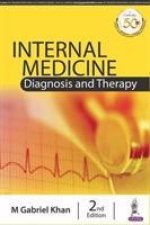
Internal Medicine
60.35 € -
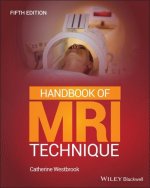
Handbook of MRI Technique, 5th Edition
64.29 € -8 % -
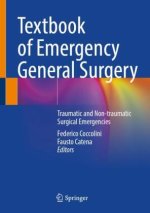
Textbook of Emergency General Surgery
191.47 € -4 % -

Haematology - From the Image to the Diagnosis
118.17 € -3 % -

Infectious Diseases - A Geographic Guide 2e
121.61 € -
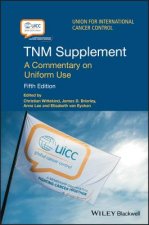
TNM Supplement
54.58 € -
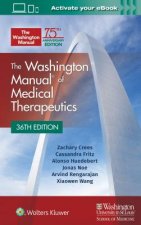
Washington Manual of Medical Therapeutics Spiral
85.42 € -10 % -

Oxford Textbook of Medicine
747.51 € -
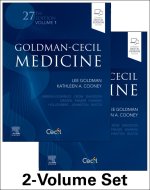
Goldman-Cecil Medicine, 2-Volume Set
210.78 € -4 % -
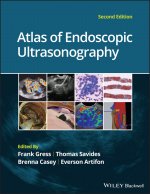
Atlas of Endoscopic Ultrasonography 2e
197.33 € -7 %
Osobní odběr Bratislava a 2642 dalších
Copyright ©2008-24 najlacnejsie-knihy.sk Wszelkie prawa zastrzeżonePrywatnieCookies


 Vrácení do měsíce
Vrácení do měsíce Zdarma od 49.99 €
Zdarma od 49.99 € 02/210 210 99 (8-15.30h)
02/210 210 99 (8-15.30h)